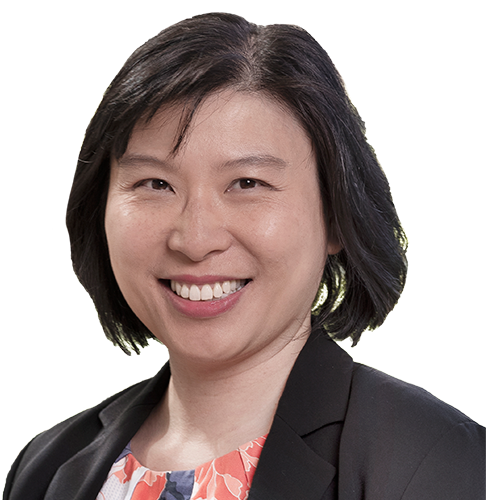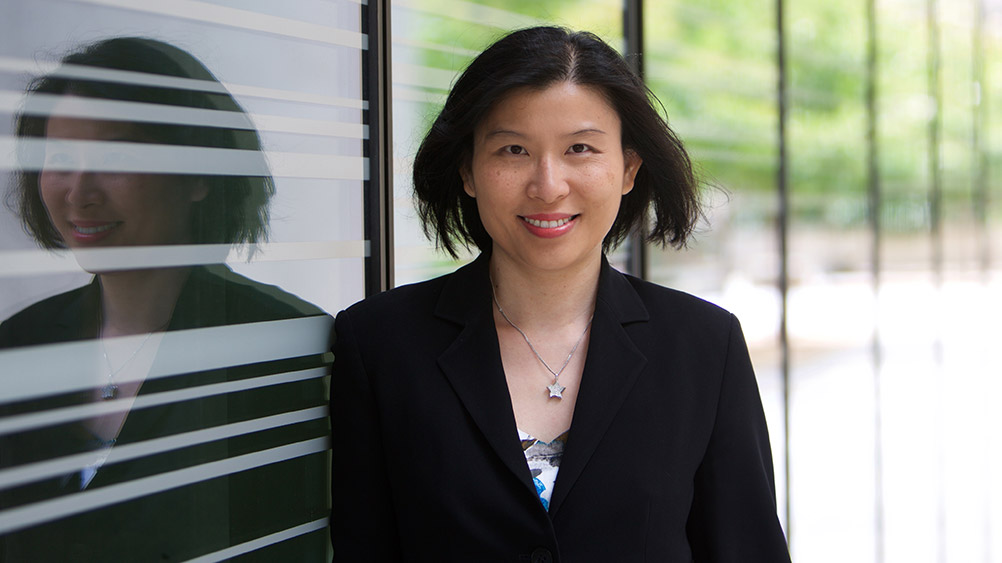
Anita Ho-Bailie
UNSW Sydney
Education is very important because young people are our future, and the more informed they are, the more educated they are, they will make better decisions for the world.”
The photovoltaic effect: How solar secrets powered a quest for knowledge
It took thinking outside the box to determine the career trajectory of world-leading solar energy researcher Anita Ho-Baillie. Specifically, a cardboard box.
Professor Ho-Baillie has set a number of solar cell efficiency records and is recognised as a global authority in the field, having been named a Clarivate Highly Cited Researcher for three years in succession from 2019 to 2021.
Working at the forefront of renewable energy materials and technology discovery was not a foregone conclusion for Anita, who considered potential career paths ranging from aeronautics to medicine and veterinary science.
But it was while studying engineering at UNSW that she came across a phenomenon so compelling it couldn’t be ignored.
“We had the late Professor Stuart Wenham teaching us,” Anita said, referring to the former Director of the ARC Centre of Excellence for Advanced Photovoltaics and Photonics, who passed away in December 2017.
“One time he got us all up onto the roof with a solar panel covered by a cardboard box, hooked up to a water pump. And as soon as you removed the cardboard box, the water just started running.
“And it was amazing because I couldn't see any power point. I think that fascinated me, the sun's energy being free and available. That got me hooked.”
Following her PhD, Anita undertook a postdoctoral research role with Wenham’s fellow solar cell pioneer Martin Green at UNSW, and also had an informative taste of industry life with Solar Sailor, a project to develop the world’s first solar-powered catamaran ferry.
She returned to UNSW in 2010, before joining the University of Sydney as the inaugural John Hooke Chair of Nanoscience in 2019.
Anita’s groundbreaking research to improve photovoltaic efficiencies regularly sees her feature in high-profile journals and the media. But inspiring young students remains the most rewarding aspect of her role in academia.
“They're just so bright, you're able to throw them a hard problem and they can tackle it,” she said.
“It's amazing. You can challenge them, get them interested in things and (help them) learn how to deal with people, even how to communicate better.”
According to Anita, it’s the intelligence and determination of young students that will enable Australia and the wider world to tackle the significant challenges posed by the climate crises and the COVID-19 pandemic.
Asked to reflect on the importance of Australia’s university and research sector, she said it’s about “being able to educate the brightest people for the grand challenges we still have to tackle.”
“I think there is enough young people who are educated enough to know what the issues are. And these young people are inspiring the older people to be able to get emotional about it. I think it's really good.”
Referring specifically to climate inaction, she added: “I used to get frustrated. I don't get frustrated anymore. I think things can change very quickly. We may be driving e-vehicles very soon, a lot sooner than people think.
“So education's very important because young people are our future, and the more informed they are, the more educated they are, they will make better decisions for the world.”
To encourage those bright and determined young minds to study science, it will be important to create a welcoming and supportive environment in which to learn and work.
As an Associate Investigator, Anita has welcomed Exciton Science’s ongoing attempts to address the gender imbalance and increase standards of diversity and inclusion in STEM.
She believes that Centres of Excellence in particular can enable members to combine parenting, family life and care-giving roles with advancing their careers more effectively.
“I love the culture. Absolutely love it. It’s so collaborative. The long duration of funding is really, really good for women,” she said.
“Having that critical mass and fluidity, where women researchers can move about (within the Centre) and have security, so they don’t have to look for funding and apply for the next thing while breastfeeding (is very important).
“The traditional view of academia was everybody is their own superstar, and you've got to be independent. You got to have your own research group. You have to be the next leader. And that’s a very individualistic way of thinking, right?
“Family is important. I'm sorry, but my job is not if I have to choose between the two.”
When it comes to making progress at work, Anita also knows the importance of developing a strong professional and personal support network, particularly for when failure – unwanted but inevitable – arises.
“That's something that every academic will face, and it's okay,” she said.
“It's always good to have somebody that you can trust, with whom you can sound things out.
“Find someone who knows your ecosystem well enough so that they can give you frank advice on why things don't go your way sometimes.
“And then make that courageous decision, and look for opportunities to see how you can position yourself better.”
For Anita, there have been plenty of courageous decisions along the way, and the members of Exciton Science – along with the University of Sydney and the wider photovoltaics research field – are all the richer for them.
